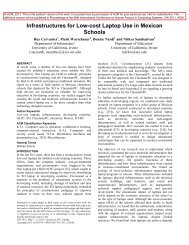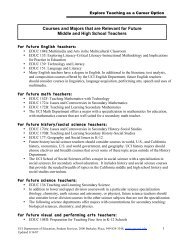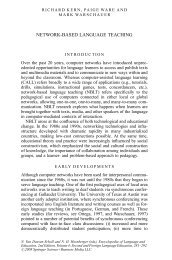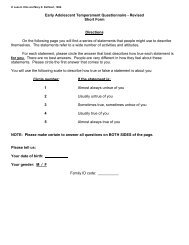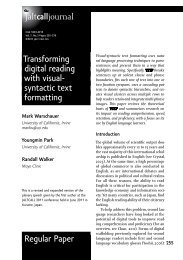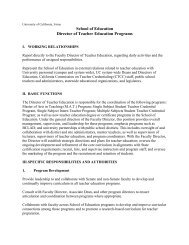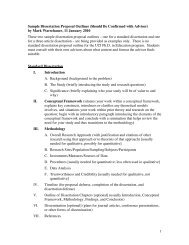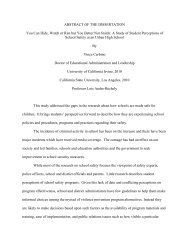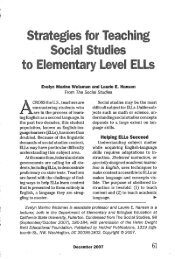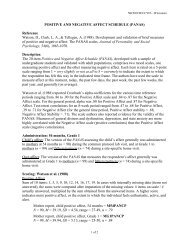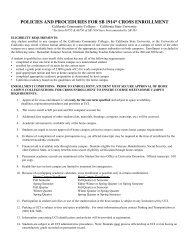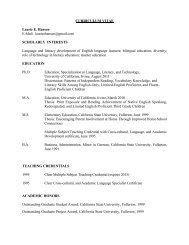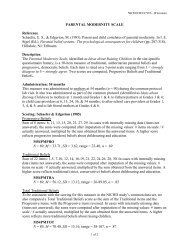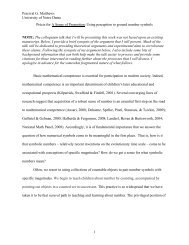Does Detracking Work? Evidence from a Mathematics Curricular ...
Does Detracking Work? Evidence from a Mathematics Curricular ...
Does Detracking Work? Evidence from a Mathematics Curricular ...
You also want an ePaper? Increase the reach of your titles
YUMPU automatically turns print PDFs into web optimized ePapers that Google loves.
<strong>Detracking</strong> 28over the study period. In the baseline cohort, Algebra takers scored roughly a third of a standarddeviation above the General <strong>Mathematics</strong> students. In the 2006-2007 cohort, however, Algebratakers scored less than a fifth of a standard deviation better than students in General<strong>Mathematics</strong>. While the interactions for the 2005-2006 and 2007-2008 cohorts are notsignificant, they are both negative. By contrast, the benefits associated with Geometry grew overthe study period. For 8 th graders in the 2004-2005 cohort, enrolling in Geometry had no effect onstudent 10 th grade mathematics achievement net of incoming scores. But by 2007-2008,Geometry course-taking raised student scores by more than half a standard deviation. Thesefindings suggest that while the educational benefits available to Towering Pines students whoenrolled in Algebra courses diminished, the educational benefits available to students whoenrolled in Geometry increased.One way that curricular intensification could hurt student learning in 8 th grade Algebraclassrooms is by increasing the degree of student skill heterogeneity in these classrooms, forcingteachers to attempt to simultaneously meet the needs of an increasingly diverse pool of learners(Rosenbaum 1999). Model 4 of Table 6 considers this possibility by adding a control for skillheterogeneity in 8 th grade mathematics classrooms, measured as the inter-quartile range ofstudents’ 7 th grade mathematics test score. Surprisingly, this analysis indicates that that skillheterogeneity improves student learning, all else equal. Furthermore, controlling for skillheterogeneity does very little to moderate the differential returns associated with higher-levelmathematics course enrollment in 8 th grade. This analysis, therefore, provides little support forthe idea that the skill heterogeneity undermines the effectiveness of curricular reforms thatdetrack by intensifying curricula.


